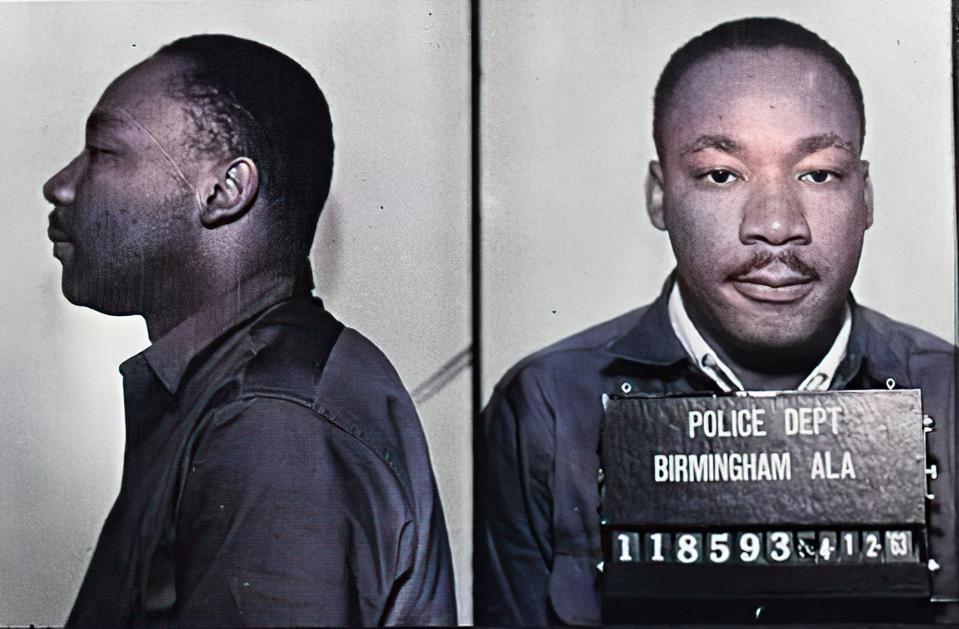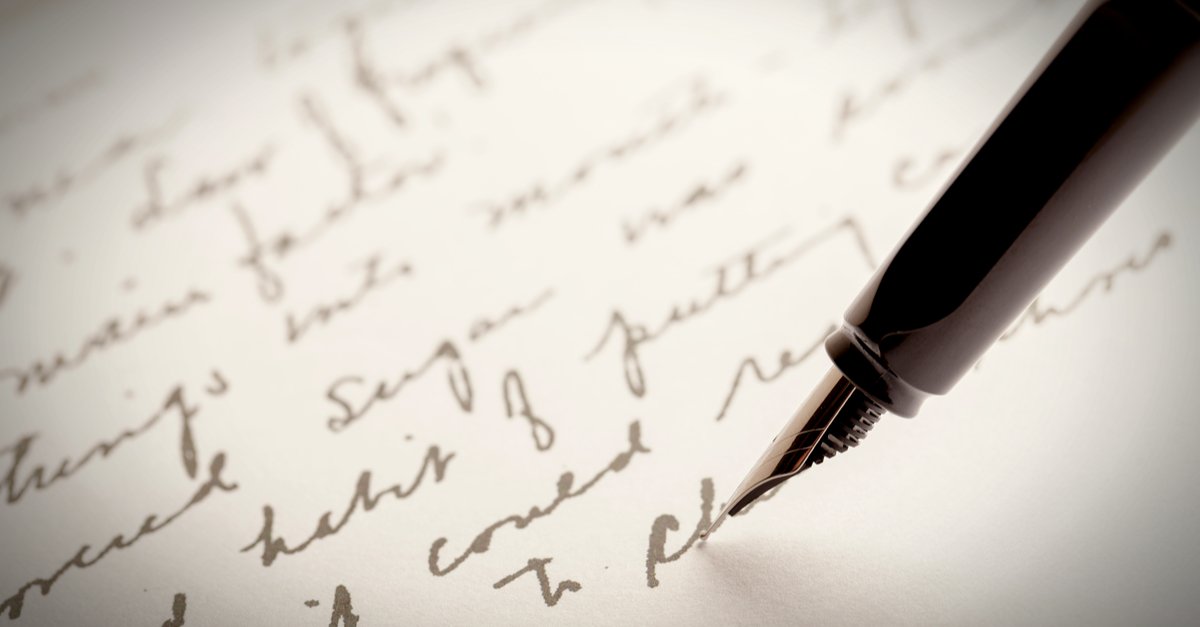Letters carry a certain weight, it’s undeniable. What could be so important, that it needed to be written down? What was so personal, that it was sealed, stamped and addressed? An invitation? Condolences? Perhaps a mixture of emotions that only the pen could describe.

Police mugshot of Martin Luther King Jr following his arrest for protests in Birmingham, Alabama, 1963. From the Gado Modern Color series. (Gado/Getty Images)
Dr. Martin Luther King Jr. wrote his iconic letter, ‘Letter from Birmingham Jail’ 61 years ago, but his words ring louder than ever. The handwritten letter consists of 7,000 words in which he passionately responds to religious leaders who criticized King and others who had been demonstrating to bring attention to racist treatment in Birmingham, Alabama. It was not published immediately but picked up by several publications throughout the country months later, namely The Atlantic, and became a cornerstone of the civil rights campaign. This letter is arguably one of the most historically significant personal compositions of our time. It’s a tangible, written account thoughtfully penned in longhand on scraps of paper. The letter is now studied in schools and colleges all over the world. Samford University history professor Jonathan Bass called it “the most important written document of the Civil Rights Era.” The power of King’s prose and philosophies are forever etched in history and our minds through a letter. It’s a pretty powerful letter and one that will forever stand the test of time.
Letters have long been an important source of biographical information, and a powerful tool for historians of all kinds. They allow the reader to peek behind the curtain and can provide a sense of intimate knowledge of historical subjects, like in Dr. King’s Letter. As we pause to reflect on the many ways that Reverend Dr. Martin Luther King, Jr. was a champion for social justice, recognize that while the letter he wrote in a Birmingham jail was in many ways the historical equivalent of a ‘mic drop,’ any of us are free to pick the mic back and attempt to continue from where he ended. The letter is an eloquently stated message to eight members of the Birmingham clergy, aimed at correcting their misconceptions and defending King’s nonviolent civil demonstrations against racial injustice. If you do nothing else to observe the day, read Dr. King’s letter and embark on a journey into our history



Discussion